Guest blogger from Cook County DOTH weighs in on how RTA can balance transit’s current needs and future opportunities
December 7, 2021
December 7, 2021
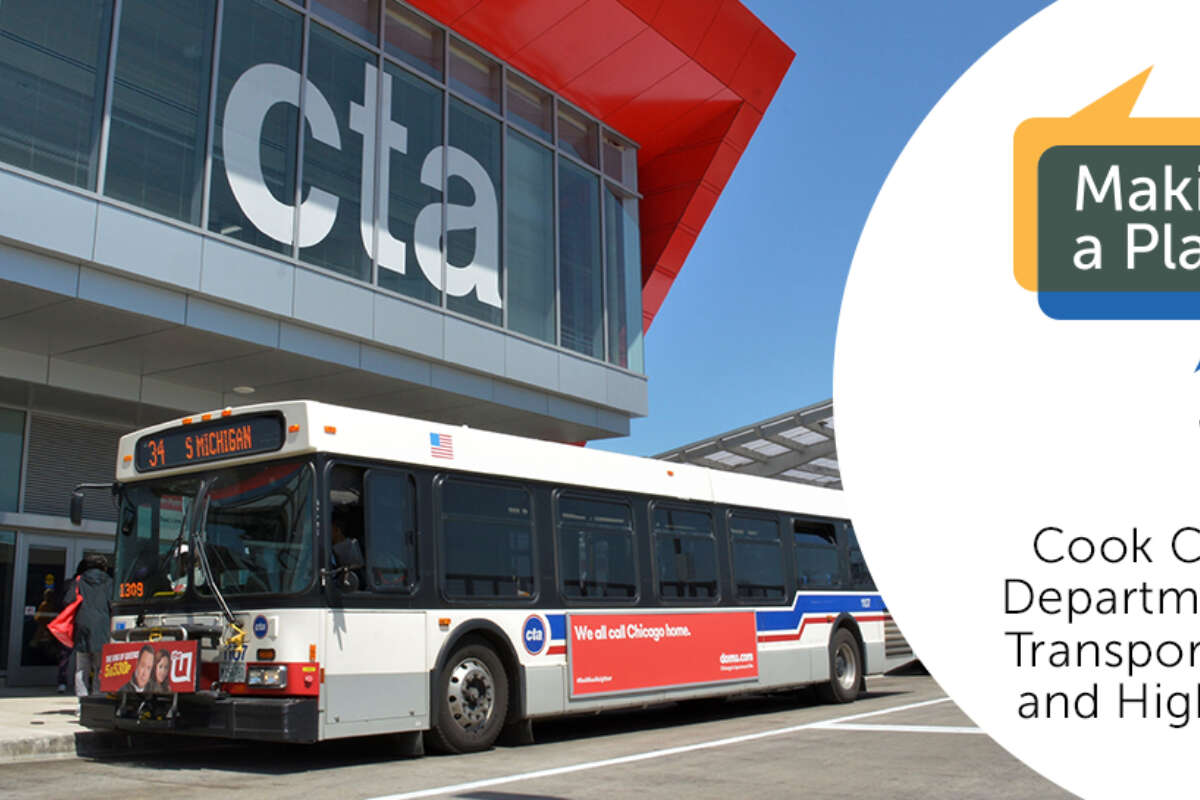
 The RTA is currently developing the 2023 Regional Transit Strategic Plan for Northeastern Illinois at a time when the challenges and opportunities facing our region’s transit system have never been greater. Making a Plan represents our effort to engage and collaborate with close stakeholders and the public. We have invited a group of transit users and thinkers to answer a set of questions for an occasional guest series on Connections, the RTA blog. The views represented in this series are not those of the RTA, but they are views we want to hear and have heard. If you have thoughts about this post, the strategic plan, or would like to participate by contributing a guest blog post, please email communications@rtachicago.org and subscribe to our newsletter to learn more.
The RTA is currently developing the 2023 Regional Transit Strategic Plan for Northeastern Illinois at a time when the challenges and opportunities facing our region’s transit system have never been greater. Making a Plan represents our effort to engage and collaborate with close stakeholders and the public. We have invited a group of transit users and thinkers to answer a set of questions for an occasional guest series on Connections, the RTA blog. The views represented in this series are not those of the RTA, but they are views we want to hear and have heard. If you have thoughts about this post, the strategic plan, or would like to participate by contributing a guest blog post, please email communications@rtachicago.org and subscribe to our newsletter to learn more.
Name: Jesse Elam
Organization or affiliation: Cook County Department of Transportation and Highways
Role/Responsibilities: Director of Strategic Planning and Policy
Favorite mode or station: I love the Loop elevated structure with the antique Quincy station on one side and the brand new, very modern Washington/Wabash station on the other.
What do you see as the greatest challenges and opportunities for the Chicago region’s transit system over the next ten years? What is the biggest barrier to realizing these opportunities?
Adapting to development and demographic trends has been one of the transit system’s biggest challenges. Transit works best when the trip origins are close together and the destinations are concentrated as well. But population and jobs have spread out over the decades. Even with some transit-oriented development efforts in recent years and a mid-2010s boom in the central area, the balance of growth has still been in places not well served by transit. At the same time job and population loss has occurred in places that have great access to transit, wasting the legacy of past capital investment and exacerbating equity issues. So there are opportunities to reexamine the types and levels of service the system provides as well as opportunities to coordinate better with local governments to focus development, particularly affordable housing and employment, around the transit system. Institutional inertia, fragmented regional governance, and neighborhood-level opposition are the long-standing challenges to these equally long-standing needs.
Tell us your ideas for improving access to transit within the Chicago region and what policy levers or partnerships might be required to make the changes you envision?
Finding relatively low-capital ways to enhance the existing system and make it more flexible and attractive to use is a winning strategy for the region. For example, making it easier and cheaper to transfer between Metra and CTA or Pace would allow riders to take trips by transit they otherwise would not have considered, expanding the transit market.
Going up a step in cost, the region should be looking carefully at infill station opportunities. Access to transit can be improved by taking away other barriers as well, such as poor walkability. Most transit trips start or end with a pedestrian trip, and where there are no curb ramps or sidewalks, or unshoveled sidewalks in the winter, getting to transit can be treacherous. The upward trend in traffic fatalities and serious injuries in the region has made being a pedestrian even riskier. Roadway agencies need to play a bigger role in improving transit and access to transit on their rights-of-way.
Decades of underfunding have left the transit system in a constant state of austerity. Tradeoffs are almost always necessary when making decisions about improvement and expansion of the system. How do you recommend investing in the system to achieve the greatest regional impact?
Continuing to share revenues between highway and transit uses is an opportunity for region. The fact that 20% of the increase in motor fuel tax from the 2019 state capital bill goes to transit capital needs is a good start. Supporting transit through toll revenues, as has been done in other states, is another possibility. Managed lane projects elsewhere have included and directly funded transit operations. While it can feel uninspiring to focus on state of good repair, keeping the system running does have to be the central priority, but finding lower-cost, higher-impact enhancements is important as well. I would also like to see a focus on controlling costs, both operating and capital. The fact that transit projects are so much more expensive in the US than elsewhere in the world is something we should do more than just shake our heads about.
The role of transit as the irreplaceable piece of our mobility system has been underscored by this pandemic. Data and survey results have shown how much essential workers, low-income riders, and residents of color have relied on it over the past year and a half especially. How has the pandemic changed or clarified your views on the role and future of public transit?
The pandemic is a reminder to focus first on the needs of transit-reliant communities. Part of that is improving the experience of bus riders, who are more likely to be people of color, by increasing bus speed and providing better bus shelters. Both Pace and CTA have programs for this – Pace’s Pulse program and the CTA’s Bus Priority Zone program. Increasing bus speed increases accessibility, which is the number of places a rider can get to within a certain travel time. That matters because of the correlation between high unemployment in communities and having low transit access to jobs. Affordability is also key to meeting the needs of transit-reliant communities. Cook County and Metra are partnering on the Fair Transit South Cook program to offer reduced fares on the Metra Electric and Rock Island lines. In the upcoming years, the RTA should also consider income-based fares by expanding reduced fare permits to any resident with low income.
Subscribe to our Newsletter
Related Articles
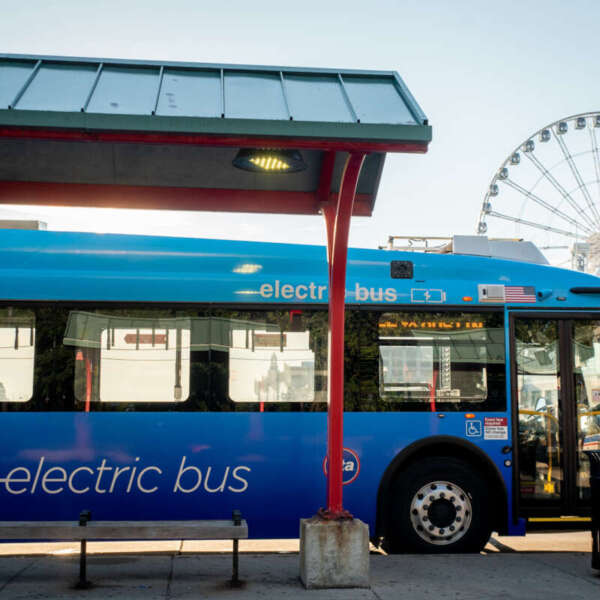 Transit is the answer to meeting Illinois’ climate goals
Transit is the answer to meeting Illinois’ climate goals
As we celebrate Earth Day 2024, the RTA is announcing Transforming Transit —the agency’s commitment to lead the Chicago region’s transit system into the futu...
April 18, 2024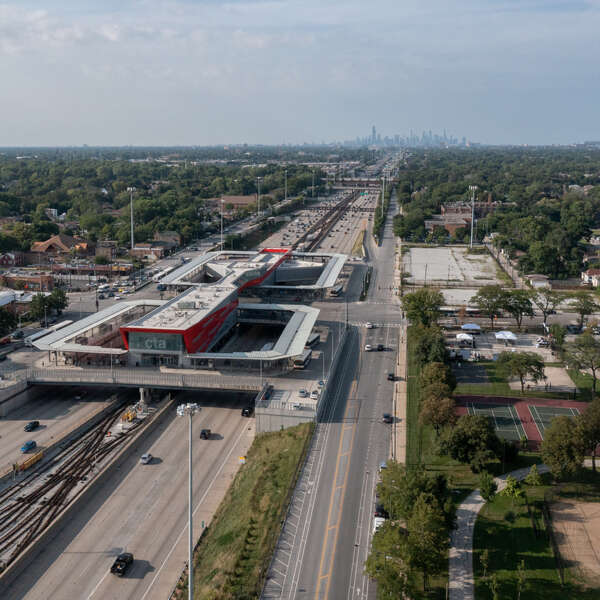 Three years into the Infrastructure Investment and Jobs Act, Chicago’s transit system is winning competitive grants and advancing critical projects
Three years into the Infrastructure Investment and Jobs Act, Chicago’s transit system is winning competitive grants and advancing critical projects
The Infrastructure Investment and Jobs Act (IIJA), passed in 2021, represented a historic level of federal investment for shoring up the nation’s infrastruct...
March 12, 2024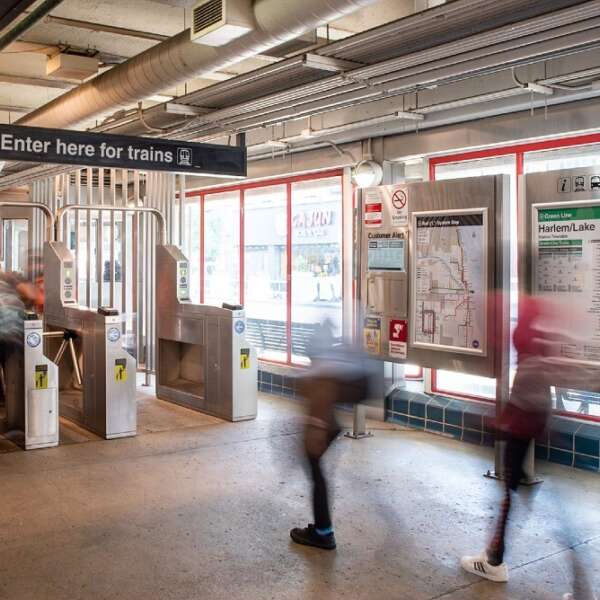 Why fully funding paratransit service and reduced fare programs is key to closing the transit budget gap
Why fully funding paratransit service and reduced fare programs is key to closing the transit budget gap
With transit facing a fiscal cliff in the coming years, fully funding critical programs like ADA paratransit service and free and reduced fare programs is on...
February 29, 2024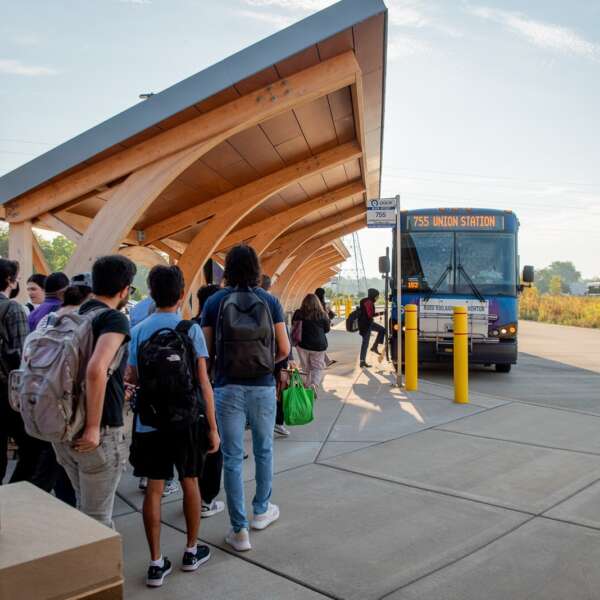 RTA releases semi-annual project management oversight report highlighting more than 100 capital projects
RTA releases semi-annual project management oversight report highlighting more than 100 capital projects
Under its Project Management Oversight (PMO) program, the RTA ensures that the Service Boards—CTA, Metra, and Pace—are spending capital funds and managing th...
January 3, 2024 New fare structure unveiled in Metra’s 2024 budget
New fare structure unveiled in Metra’s 2024 budget
This guest blog was written by Metra CEO/Executive Director James Derwinski. Learn more about the proposed 2024 Regional Transit Operating Budget and Capital...
November 16, 2023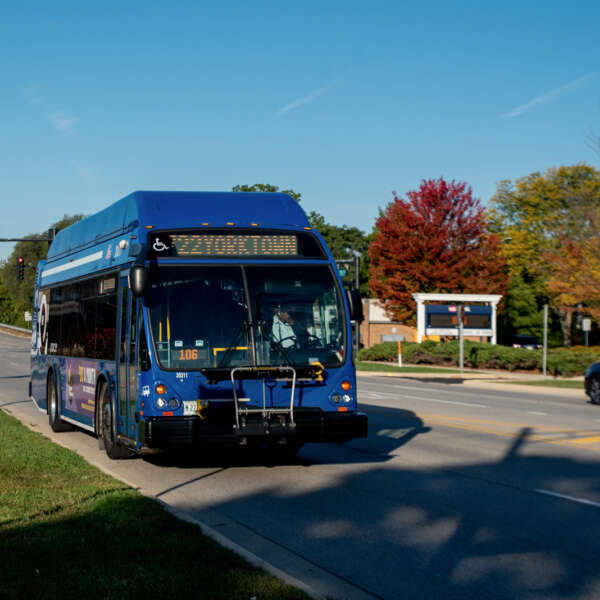 Melinda Metzger defines service and operating goals for Pace with 2024 budget
Melinda Metzger defines service and operating goals for Pace with 2024 budget
This guest blog was written by Pace Suburban Bus Executive Director, Melinda J. Metzger. Learn more about the proposed 2024 Regional Transit Operating Budget...
November 16, 2023